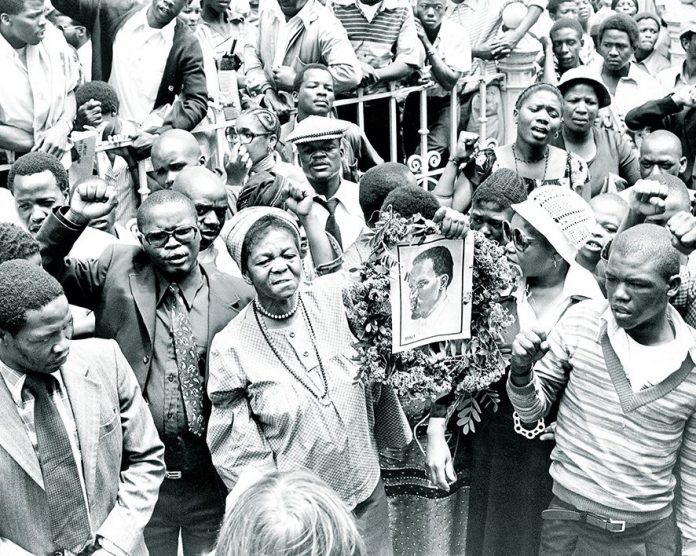Johannesburg -How would Steve Bantu Biko have responded, if he were alive, to the dishonourable hitmen who recently fired fatal gunshots that killed three women in the vicinity of an ANC meeting held at Inanda, KwaZulu-Natal.
The ill-fated meeting was to elect councillors to represent the party in the upcoming local government elections on November 1.
As the Biko month ended in which adherents of the black consciousness philosophy reflect on his callous death at the hands of the apartheid security police on September 12, 1977, it behoves us all in society to be concerned about the political killings instigated by the
a desire for political office.
Too often South Africans have read, heard or seen gruesome images of aspirant councillors killed in cold blood by hitmen or “izinkabi” bought for a few thousand rand to “do the elimination job”.
Too often the ruthless killings are orchestrated by these foot soldiers at the behest of political principals or political gangsters, as was the case with the matter that involved the killing of former ANC Youth League leader and proportional representative (PR) councillor Sindiso Magaqa in Umzimkhulu, KZN, in 2017. Some of the accused in his trial were his comrades.
This is how low the political bar has been lowered in our country’s landscape!
Political thuggery has taken root in our communities – a practice that has seemingly become a norm, often not frowned upon enough by political leaders who stand to benefit from its outcomes.
I digress to illustrate the point of how as a society we have shifted from political morality into the realm of political thuggery, which to our shame, defaces democratic principles enshrined in our constitution.
It is nearly 45 years since Biko himself fell into the hands of violent men, motivated and encouraged by their political masters and by men who occupied a political office at the so-called “hallowed” grounds of the Union Buildings.
In his death, Biko continues to be described as the father of the Black Consciousness Movement in South Africa. His politics were politics of morality, inculcated in the hearts of black people to dismantle the chains of bondage and inferiority and self-hate. To kill your own is to hate yourself. This lesson is implied in Biko’s teachings.
In part, Biko talks more about “dehumanisation” and “disfigurement”, when we have no respect for others and seek to dehumanise them.
When you are “bought”, given huge sums of money to kill because you want to stop an innocent person from advancing to a position of a councillor, this says much about the extent to which our humanity has been disfigured or blemished to a point of being dehumanised, lacking the ability to refuse to resist evil and do evil.
Biko’s black consciousness philosophy has inspired black men and women of his time, to not despise or belittle themselves because of the pigmentation of their skin, but rather to aim for the stars and be liberated by the knowledge that “black is beautiful” and capable of goodness, and should not be thought of as inferior.
Under the rubric of “black man[woman] you are on your own”, he galvanised black communities to take the fight to the oppressive regime and to demand the right to self-determination. Using violence instead of logic, the apartheid system ended his life. At a building in Port Elizabeth, now Gqeberha, he was beaten to a pulp.
He and his comrades had been waylaid and arrested at a roadblock in Gqeberha on 18 August 1977. A month later, he was transported in a police van of shame, naked and brain-damaged, and on the verge of death to Pretoria. In the van, there was no medical supervision, despite the severe assault inflicted on him by the security police and others. On September 17 1977, at his Pretoria cell of shame, he was found dead, naked and shackled.
Biko, whose abiding vision and philosophy was to create a new egalitarian society in which black people would enjoy their humanity and the right to self-determination, died wearing a badge of selflessness as a “selfless revolutionary”. He was driven by the love of his people.
• Mdhlela is a journalist, priest and former trade, unionist.

To read more political news and views from this week’s newspaper, click here.
Follow @SundayWorldZA on Twitter and @sundayworldza on Instagram, or like our Facebook Page, Sunday World, by clicking here for the latest breaking news in South Africa. To Subscribe to Sunday World, click here.
Sunday World
[/membership] [pmpro_signup submit_button=”Register” level=”1″ login=”1″ redirect=”referrer” short=”false” title=”Register to view Exclusive Content” short=”true” custom_fields=”true”]


